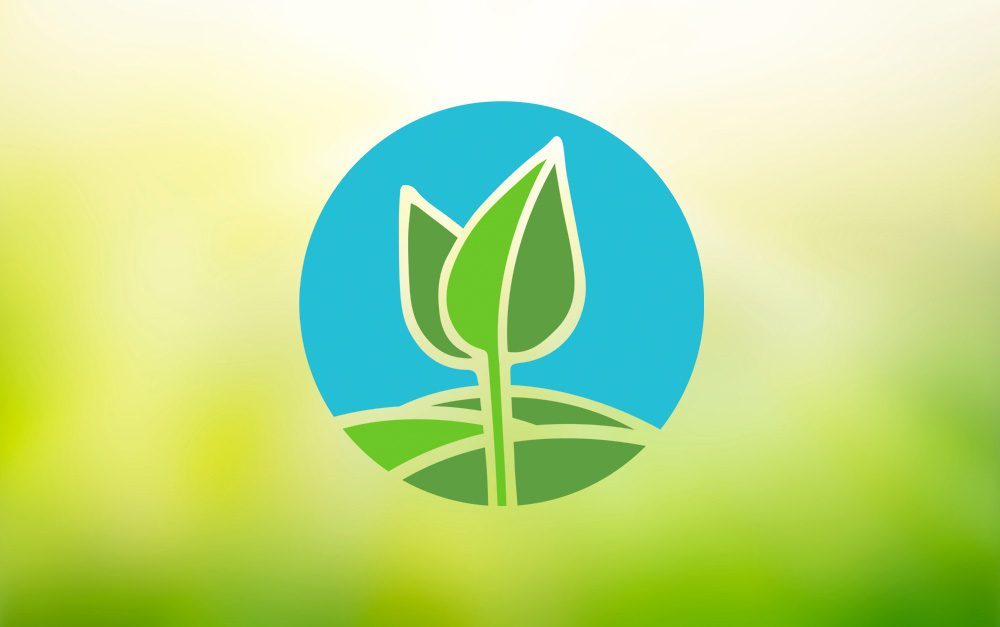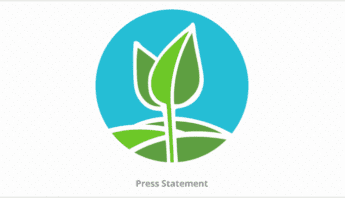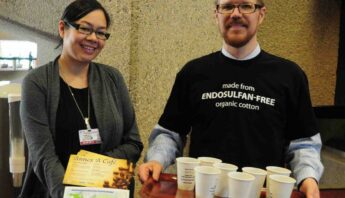FOR IMMEDIATE RELEASE
Contact:
Medha Chandra, Pesticide Action Network
mchandra@panna.org, phone: 415-981-1771
Bayer to stop selling endosulfan
SAN FRANCISCO, JULY 23, 2009 — The multinational chemical company Bayer has committed to end distribution of the pesticide endosulfan in 2010, and to replace the toxic pesticide with safer alternatives. The decision follows an innovative action in 16 countries, led by Pants to Poverty, the organic and Fairtrade underwear company, and its coalition of partners including Pesticide Action Network, Fairtrade Alliance Kerala and Zameen Organic.
In a letter addressed to Coalition Against Bayer Dangers, Bayer said: "We plan to stop the sale of the substance endosulfan by the end of 2010 in all the countries where it is still legally available." The letter, signed by Bayer CropScience's head of investor relations, Judith Nestmann, said endosulfan would be replaced by alternatives "with a significantly better risk profile".
Bayer's decision comes after years of global campaigning by the PAN Network and its partners and allies against this persistent pesticide, which is linked to autism, birth defects and male reproductive harm, as well as deaths and acute injuries to farmers through direct contact. It is banned in over 60 countries including those in the European Union. In the United States endosulfan is used primarily on cotton in the state of California and tomatoes in Florida. Several lawsuits and legal petitions have been filed by groups concerned about the chemical’s health effects.
In this latest action, in 16 centres around the world, people exchanged their conventional undies for a free pair of organic underwear, and signalled their commitment to cotton production without the use of endosulfan. The conventional undies were sent to Bayer’s HQ with a demand that it ceases to distribute endosulfan.
Linda Craig, Director of Pesticide Action Network UK, said, “We are pleased that Bayer has committed to stop selling endosulfan. There are many proven alternatives to its use that do not have the deadly side effects of this pesticide”.
Staff scientist Karl Tupper of PAN North America said “With Bayer stepping out of the picture, this leaves just handful of generic manufactures selling this poison. We call on these companies to put health and the environment ahead of the meagre profits they earn pushing this antiquated pesticide, and stop their sales. It’s the only responsible thing to do.”
“Nine countries in West Africa have taken the resolution to ban the use of endosulfan in agriculture because of the serious effects observed on farmers and their families, and on the environment. It is necessary to continue to push for the total ban of this product around the world” indicated Dr. Abou Thiam, regional coordinator of Pesticide Action Network Africa.
At the international level, endosulfan is being scrutinized at the Rotterdam Convention for stricter regulation and at the Stockholm Convention for an international ban due to its adverse effects on human health and the environment. PAN will continue to work to ensure that endosulfan is included in the list of chemicals that are banned globally.
However, progress is obstructed by the Government of India, as Dr. Meriel Watts, Coordinator of PAN Aotearoa New Zealand observes: “In India, the Government itself manufactures endosulfan – it owns Hindustan Insecticides which manufactures endosulfan, and then the Indian Government acts in the international conventions to stop endosulfan's listing. It has members on both the Stockholm Convention’s POPS Review Committee and the Rotterdam Convention’s Chemical Review Committee. This is a “clear conflict of interest”, she says, “a manufacturer is using its power to veto international agreements on a chemical.”
“Chemicals like endosulfan that are toxic, bioaccumulative and so persistent that they contaminate our bodies, our babies and the environment have no place in agriculture. We are calling on all governments and industries that still use, manufacture or trade in endosulfan to follow Bayer example and cease to profit from this toxic poison,” said Dr. Mariann Lloyd-Smith, Co-Chair of the International POPs Elimination Network.
####
Available for interviews:
Medha Chandra, Pesticide Action Network North America, mchandra@panna.org, 415-981-1771.
Kristin Schafer, Pesticide Action Network North America, kristins@panna.org, 408-836-8189.
Notes to editors
- Pesticide Action Network (PAN) is a network of over 600 participating nongovernmental organizations, institutions and individuals in over 90 countries working to replace the use of hazardous pesticides with ecologically sound and socially just alternatives.
- The International POPs Elimination Network (IPEN) is a global network of more than 600 public interest non-governmental organizations working together for the elimination of persistent organic pollutants, on an expedited yet socially equitable basis.







